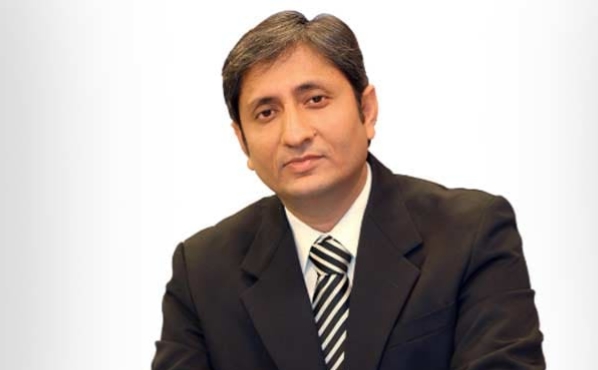Ravish Kumar is not just a journalist; he is a symbol of fearless, ethical journalism in an age dominated by sensationalism and corporate influence.

Known for his sharp analysis, humility, and refusal to bend under political or corporate pressure, Ravish Kumar has inspired millions in India and abroad.
From his modest beginnings in a small town in Bihar to becoming one of India’s most respected TV anchors and later an independent digital voice, Kumar’s journey reflects persistence, integrity, and a deep sense of responsibility toward democracy.
Quick Overview Table: Ravish Kumar at a Glance
| Attribute | Details (as of 2025) |
|---|---|
| Full Name | Ravish Kumar Pandey |
| Date of Birth | December 5, 1974 |
| Age | 50 years (as of 2025) |
| Birthplace | Motihari, East Champaran, Bihar, India |
| Profession | Journalist, Author, YouTuber, Public Speaker |
| Net Worth | Approx. ₹15–20 Crore (estimated, from books, lectures, and digital work post-NDTV) |
| Education | BA (History), MA (History), MPhil (Delhi University); Indian Institute of Mass Communication |
| Known For | Prime Time (NDTV), critical commentary on politics, fearless independent journalism |
| Awards | Ramon Magsaysay Award (2019), Ganesh Shankar Vidyarthi Award, Ramnath Goenka Award (multiple), Red Ink Journalist of the Year |
| Books | The Free Voice, Ishq Mein Sheher Hona, Bolna Hi Hai, among others |
| Current Platform | YouTube channel “Ravish Kumar Official” (millions of subscribers) |
| Spouse | Nayana Dasgupta (Professor of History, Lady Shri Ram College, Delhi University) |
| Children | Two daughters |
Early Life and Background
Ravish Kumar was born on December 5, 1974, in Jitwarpur village, Motihari, East Champaran district, Bihar, the same region where Mahatma Gandhi launched the Champaran Satyagraha in 1917. This historical backdrop of resistance and truth-seeking would later become symbolic in his own journalistic path.
He belonged to a modest middle-class family, where education was highly valued despite limited resources. Growing up in rural Bihar in the 1980s, Kumar experienced firsthand the struggles of rural India—poor infrastructure, social inequality, and political neglect. These experiences sharpened his sensitivity toward marginalized voices, something that later defined his journalism.
Education and Intellectual Foundation
Kumar moved to Delhi for higher studies, where he faced the cultural and social challenges of a small-town student adapting to metropolitan life. He completed:
- BA (History) from Deshbandhu College, Delhi University
- MA (History) and MPhil from Delhi University
- Later trained in journalism at the Indian Institute of Mass Communication (IIMC), Delhi
His time in Delhi was transformative. In his own words, narrated in his memoir The Free Voice, he often struggled with language barriers, financial pressures, and self-doubt. However, he overcame these challenges through resilience, shaping a unique journalistic identity rooted in simplicity, authenticity, and empathy.
Journalism Career at NDTV
Entry into NDTV
Ravish Kumar joined NDTV India in the mid-1990s as a young reporter. Initially, he covered small news beats but gradually rose to prominence due to his sharp reporting style and deep connection with ordinary people’s issues.
Rise to Prominence
Kumar became widely recognized as the anchor of “Prime Time”, NDTV India’s flagship show. Unlike most prime-time debates, which often turned into shouting matches, Kumar’s format was conversational, fact-driven, and people-centric.
His shows frequently highlighted:
- Farmers’ distress
- Unemployment and education crises
- Threats to democracy and press freedom
- Everyday struggles of ordinary citizens
He stood apart from many contemporaries who leaned toward sensationalism or political favoritism.
Independence from NDTV
In December 2022, Ravish Kumar resigned from NDTV after Adani Group acquired a major stake in the channel. Many saw his exit as symbolic of the growing crisis in Indian media independence.
Shortly after, he launched his own YouTube channel “Ravish Kumar Official”, which quickly crossed millions of subscribers. This shift demonstrated his adaptability and direct connection with viewers, bypassing corporate control.
Major Achievements and Awards
Ravish Kumar’s integrity and courage have been recognized nationally and internationally:
- Ramon Magsaysay Award (2019) – Often considered the “Asian Nobel Prize,” awarded for “harnessing journalism to give voice to the voiceless.”
- Ramnath Goenka Excellence in Journalism Awards (twice)
- Ganesh Shankar Vidyarthi Award for Hindi Journalism
- Red Ink Journalist of the Year (2016) by Mumbai Press Club
- Multiple honorary doctorates and global recognition for defending press freedom
Books and Writings
Ravish Kumar is also a prolific writer. His books blend personal reflections, social commentary, and sharp political critique:
- The Free Voice: On Democracy, Culture and the Nation (2018) – Internationally acclaimed, translated into multiple languages
- Ishq Mein Sheher Hona – A celebrated Hindi novel blending love and urban alienation
- Bolna Hi Hai – Essays on democracy and dissent
- Dekhte Rahiye – Reflections on the evolution of television journalism
Through these works, Kumar positioned himself not only as a journalist but also as a public intellectual.
Personal Life
Ravish Kumar is married to Nayana Dasgupta, a respected professor of history at Lady Shri Ram College, Delhi University. The couple has two daughters.
Despite his fame, Kumar remains deeply private about his family life. His humility and simplicity are evident—he avoids celebrity culture, often highlighting the everyday struggles of common citizens rather than personal luxuries.
Challenges and Controversies
Ravish Kumar’s career has not been free of challenges:
- Troll Attacks: He has been the target of online harassment campaigns, often receiving death threats for his outspoken criticism of power.
- Political Pressure: His shows frequently faced pushback from political and corporate establishments.
- NDTV Exit: While many praised his integrity, critics argue that his decision to leave NDTV left a void in mainstream media.
Despite these hurdles, Kumar continued his work independently, proving his resilience.
Influence and Legacy
Ravish Kumar’s legacy lies in restoring credibility to journalism at a time when much of Indian television news was accused of bias and sensationalism.
Why He Matters Today (2025)
- In an era of AI-driven misinformation, Kumar’s emphasis on fact-checking and human stories remains vital.
- His independent digital presence shows how journalists can thrive outside traditional networks.
- His career serves as a case study for young journalists on balancing ethics with survival.
Comparisons with Contemporaries
- Unlike anchors who thrived on loud debates (e.g., Arnab Goswami), Kumar focused on quiet, fact-based storytelling.
- Internationally, his style is often compared to journalists like Christiane Amanpour and Jon Snow, who balance empathy with sharp questioning.
Pros and Cons of Ravish Kumar’s Impact
Pros
- Strengthened faith in ethical journalism
- Gave voice to marginalized communities
- Inspired young journalists and writers
- Proved that independent media can succeed digitally
Cons
- His idealistic approach sometimes limited mass-market appeal compared to more dramatic TV journalism
- Critics argue he focuses heavily on problems without always suggesting practical solutions
Legacy Beyond Journalism
Ravish Kumar’s impact goes beyond the newsroom:
- As an author, he shaped Hindi literature and political commentary.
- As a public speaker, he addressed global forums on democracy and press freedom.
- As a teacher figure, his speeches and writings continue to inspire students across India.
In the broader canvas of Indian democracy, Kumar represents the voice of conscience—a journalist who did not compromise when faced with power.
FAQs about Ravish Kumar
Q1: Why did Ravish Kumar leave NDTV?
He resigned in December 2022 after Adani Group’s takeover, citing concerns over media independence.
Q2: What is Ravish Kumar doing now (2025)?
He runs a successful YouTube channel, writes books, and delivers lectures in India and abroad.
Q3: What is Ravish Kumar’s net worth?
Estimated around ₹15–20 Crore, mainly from books, speaking engagements, and digital platforms.
Q4: Has Ravish Kumar entered politics?
As of 2025, no. He maintains that journalism, not politics, is his calling.
Q5: Why is Ravish Kumar compared to global journalists?
His calm, people-centric reporting style has drawn comparisons with globally respected figures like Christiane Amanpour.
Conclusion
Ravish Kumar’s life is not just the story of a journalist; it is the story of courage in an era of compromised media. From Bihar’s dusty lanes to global recognition, he embodies the values of truth, resilience, and ethical journalism.
In 2025, as media faces the dual challenges of corporate capture and digital misinformation, Kumar’s voice continues to remind society of the essential role of journalism: to speak truth to power and give voice to the voiceless.
If you’re interested in biographies of other inspiring figures, you may also explore David Goggins’ Pull-Up Record, William Shakespeare Quotes, or Top 10 Finance Books.
Thank you for reading!
Stay tuned for more inspiring Books summary, Author spotlight, Trend Books & more get full information on TheBooksx.com






